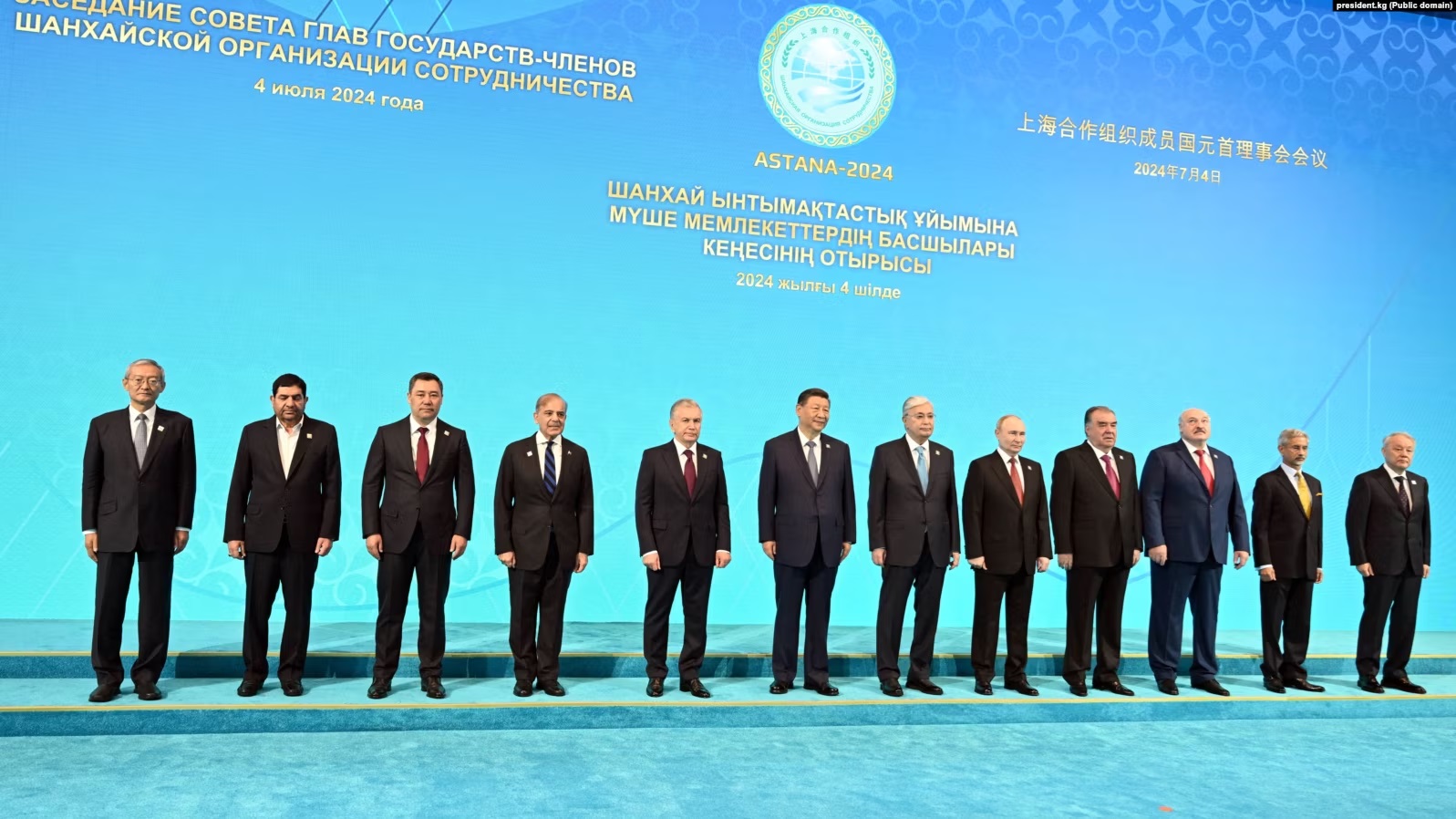ASTANA, July 4 /Correspondent LP/News Agencies/ — Leaders from China, Russia, Turkey, Pakistan, four of the five post-Soviet republics of Central Asia, and other states are continuing a two-day summit in Kazakhstan for the Shanghai Cooperation Organization (SCO), a regional group promoted by Beijing and Moscow as an alternative to Western influence.
The summit’s second and final day began with the acceptance of Belarus as a member, a move that advances authoritarian leader Aleksandr Lukashenka’s anti-Western agenda following disputed elections four years ago that led to significant protests and a harsh crackdown.
Lukashenka has sought SCO membership for 15 years. His recent actions, such as using third-party migrants as political tools at Belarus’s EU borders and allowing Russian troops to use Belarusian territory for their invasion of Ukraine, have further distanced him from the West and increased his dependence on Moscow.
Lukashenka hailed Belarus’s entry into the SCO as “historic.” He emphasized the need to “destroy the unipolar world” and take responsibility for “global security,” claiming that the “narcissistic, selfish West” was incapable of such responsibilities.
“There are no leaders in the West capable of making responsible decisions independently,” Lukashenka asserted.
Analysts suggest Lukashenka hopes that joining the SCO will boost and expand trade and economic cooperation with China, slightly reducing his regime’s reliance on Moscow.
The SCO, a political, economic, security, and defense organization, was founded by China and Russia in 2001. With Belarus’s addition, its membership has grown from six to 10 countries, including India and Pakistan, who joined in 2017, and Iran, which became a member in 2023. Four of the five post-Soviet Central Asian states are members, with only Turkmenistan opting out.
On the summit’s first day in Astana, under heightened security measures, Russian President Vladimir Putin and Chinese leader Xi Jinping met. Putin praised the SCO for “strengthening its role as one of the key pillars of a fair multipolar world order.” Xi, who has supported Russia diplomatically despite Western objections to Putin’s invasion of Ukraine, referred to Putin as an “old friend” and highlighted their “aspiration of friendship for generations” amid an “ever-changing international situation.”
The Kremlin reported that Putin and Xi discussed the Ukraine war and, according to Kremlin spokesman Dmitry Peskov, recognized the “futility of any formats” for peace talks without Russian participation.
On the second day, Xi urged SCO members to “resist external interference” and “safeguard the right to development.”
The summit was attended by the presidents of Kazakhstan, Kyrgyzstan, Tajikistan, and Uzbekistan, along with Turkish President Recep Tayyip Erdogan, Pakistani Prime Minister Shahbaz Sharif, and Azerbaijani President Ilham Aliyev. Both Baku and Ankara are dialogue partners of the SCO.
UN Secretary-General Antonio Guterres is also there as part of his first tour of Central Asia since 2017, which will take him to Tajikistan next. He attended the SCO’s remotely held summit last year.
The SCO’s 23-year history has largely been shaped by China and Russia’s evolving relationship.
Putin and Xi’s recent efforts since the Ukraine war began have pressed the SCO as part of their broader cooperation and a centerpiece of their shared anti-U.S. perspective.
But beyond the Belarus move, it is unclear what if any gains are likely to be made by the organization at this, its 24th, annual summit.
Critics say that, in expanding its membership and geographical reach, it has diluted whatever mission it might hope to achieve.
“It’s still trying to figure out what it is now and what it can be,” Temur Umarov, a fellow at the Carnegie Russia Eurasia Center in Berlin told media.
